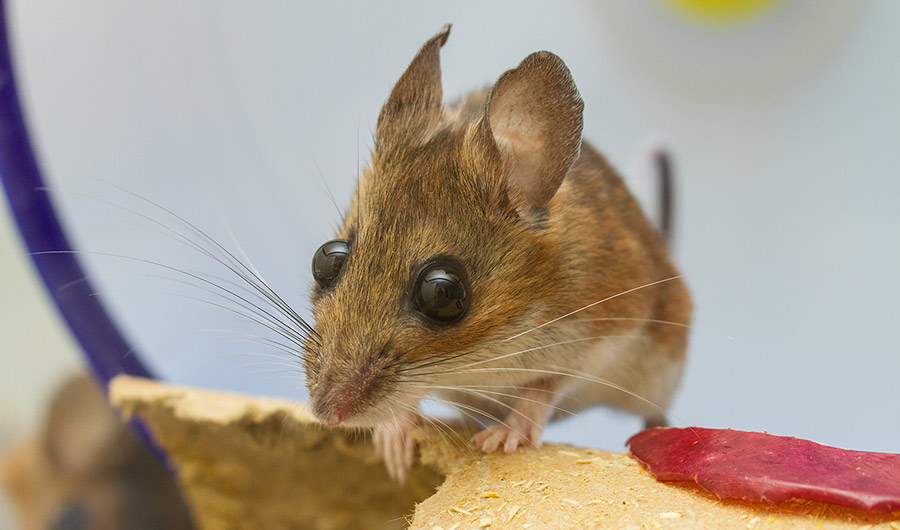Inbred Mouse Dads Have More Daughters
(Inside Science) -- Should you have a son, or a daughter? If your goal is evolutionary success -- in other words, hordes of grandchildren -- the sex of your offspring can affect your chances. Now, research on white-footed mice has shown that a father's sperm can skew his offspring's sex ratio, potentially giving him a reproductive edge. The finding upends conventional wisdom that only females’ reproductive systems can influence their likelihood of having sons versus daughters.
According to one well-studied theory, daughters are thought to be a safer bet, while sons are usually "high risk, high reward." That's because in many species (including humans), males tend to vary more in their reproductive success, with some hotshots having tons of babies and others having none at all.
Thus, if you can give your son every possible advantage, that son is likely to produce more babies than a daughter ever could. But if your son will be undernourished or saddled with genetic problems, he may not be able to compete with more privileged males, so daughters are probably your best bet to pass on your genes.
While both fathers and mothers could theoretically benefit from influencing the sex of their offspring, researchers have long assumed that mothers are the only parents to do so, said Aurelio Malo, an evolutionary biologist at Oxford University in England and first author of the study, which was published today in Proceedings of the Royal Society B. For example, females' bodies could theoretically exert some control over which sperm fertilizes their eggs, or they may selectively abort fetuses of a certain sex.
Studies in red deer and pygmy hippos have suggested that fathers may have sex-controlling powers, too. But researchers have been skeptical of those findings, since in both cases, it was possible to explain the results as manipulations by the mother, said Malo.
In the new study, the researchers paired off 58 female white-footed mice with 58 males, some of which had genetic disadvantages due to inbreeding. As expected, the inbred males tended to produce more daughters, while non-inbred males had more sons.
Next, the researchers examined sperm taken directly from the mice's testes. Sex determination in mice works the same way as in humans, with females inheriting two X chromosomes and males inheriting an X and a Y. All eggs contain one X chromosome, but sperm can contain either an X or Y, so the sex of the baby depends on which kind of sperm fertilizes the egg.
The researchers found that inbred mice with lots of daughters tended to have more sperm with X chromosomes, while non-inbred mice with lots of sons tended to have more sperm with Y chromosomes. The ratio of Y- to X-bearing sperm explained 22 percent of the variation in offspring sex ratio, strongly suggesting that mouse dads had some control over their babies' sex.
"It challenges this traditional view that has been consistently disregarding the role of the fathers as drivers of sex ratios," said Malo. According to him, the findings may open up a whole new area of research into how moms and dads can manipulate their babies' sex together.


